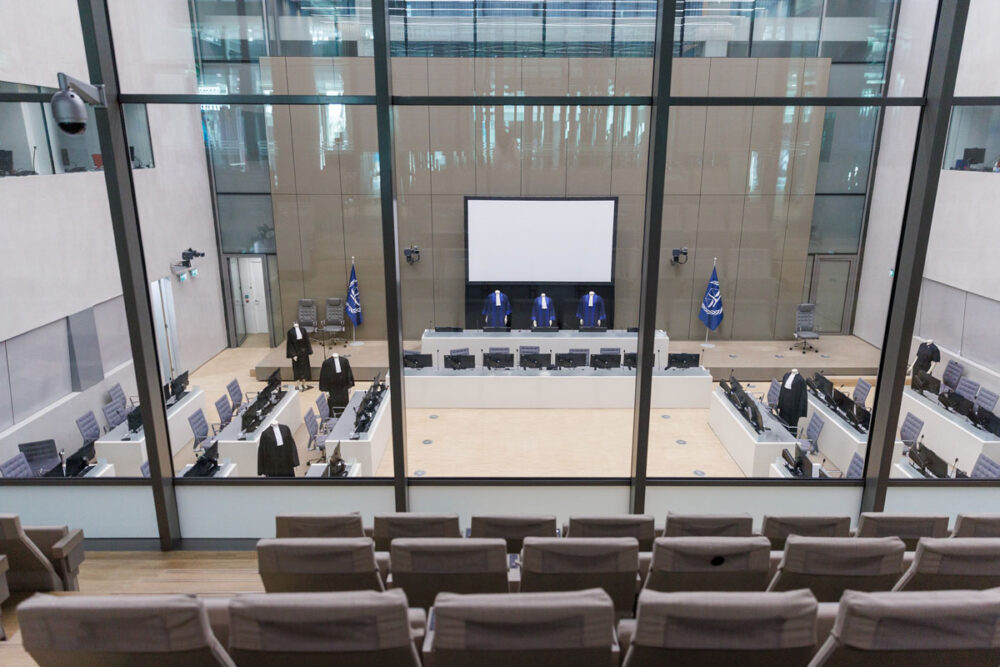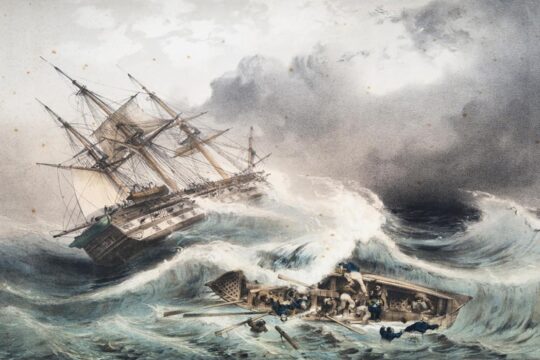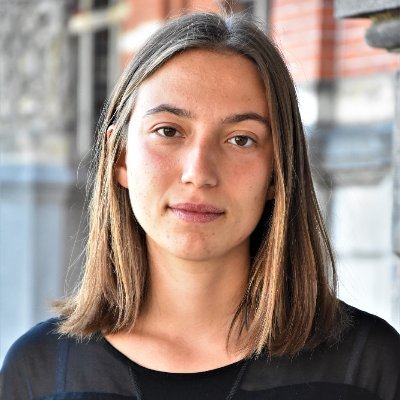Judges at the International Criminal Court (ICC) confirmed the long-awaited arrest warrants for Israeli and Hamas leaders on November 21. Six days later, the Prosecutor of the Hague court requested the first arrest warrants for Myanmar, which if approved would connect the country’s military ruler with the now 30 suspects wanted by the ICC, including Vladimir Putin. But while the number of defendants at large keeps rising, the one of those sitting behind bars is dropping fast.
According to the November 22 report of the Committee on Budget and Finance for the Assembly of State Parties (ASP) that started in the Hague on December 2, three cases are expected for 2025: Yekatom and Ngaïssona from Central African Republic (CAR), Abd-Al-Rahman from Sudan, and Said also from CAR. By January, the first two will only be awaiting a judgment and reparations order. The court calendar is expected to mark only 80 hearing days, compared to an average of 369 per year for three trial chambers in the previous 8 years (excluding the shutdown for covid in 2020). In the proposed budget for next year, published on July 26, the Court wrote that, despite this decrease, “the investigative function of the Office of the Prosecutor is facing unprecedented pressure”. It points at pre-trial and appeal activity expected to remain high. But what about actual trials?
“The mandate of the office [of the prosecutor] is to conduct criminal trials. And to do that, they need defendants,” comments Leila Sadat, the James Carr Professor of International Criminal Law at Washington University in St. Louis, who served as Special Adviser on Crimes Against Humanity to the ICC Prosecutor from 2012 to 2023. “So I think that the prosecutor really needs to roll out more indictments and more arrest warrants and focus on not necessarily the big fish, but cases that are winnable, cases where the jurisprudence will be important.”
The stubborn reality of today’s situation is that while very high-profile political leaders from different parts of the world stand accused by the ICC, the only ones that are actually tried remain mid-level African rebel commanders.
“There's no point in finger-pointing, we need to be professional about this and say, for whatever reason, there are insufficient cases now in the pipeline. And it is for the ASP to tell the prosecutor, we want you to do more cases. And maybe stop focusing on the dream cases and get some accused in the dock who have also committed extraordinary crimes,” says Sadat.
No new trial to expect in 2025
Next year’s hearings will see the continuation of a single trial, that of Said, for crimes against humanity and war crimes he allegedly committed in the Central African Republic in 2013. For the two other cases currently on trial – the Yekatom and Ngaïssona trial, also for crimes against humanity and war crimes committed in CAR between 2013 and 2014, and the Abd-Al-Rahman trial, for crimes committed in Darfur, Sudan, between 2003 and 2004 – closing statements are scheduled in mid-December and judgements expected early next year. Some appeals proceedings may take place. But there are now only five people in the Hague prison: those four, and Al Hassan, a Malian who received his sentence on November 20 for crimes committed in Timbuktu in 2012.
More work is expected by the Court when it comes to reparation programmes implemented by the Trust Fund for Victims, an organ of the Rome Treaty system that works separately. The Ongwen, Ntaganda, Al Mahdi and Lubanga cases are in the implementation phase, and the Al Hassan reparations programme is expected to start. Appeals to Al Hassan’s sentencing, to the reparations order in the Ongwen case and possibly to the judgements stemming from the two cases wrapping up now, will keep the appeals chamber busy.
As a result, the pressure for arresting suspects is mounting. Currently, the ICC has 12 ongoing and 5 concluded investigations. In 10 of those there are public arrest warrants (Libya, Ukraine, Darfur/Sudan, Georgia, State of Palestine, CAR, Kenya, Democratic Republic of Congo, Mali, Uganda). 11 if Myanmar’s arrest warrant is confirmed by the judges. Four situations do not show warrants of arrest publicly available: Burundi, Afghanistan, the Republic of the Philippines, and Venezuela. Another two – Côte d’Ivoire and the first investigation in CAR – are considered either closed, or without any accused at large.
“Greater focus on tracking and arrest, in collaboration with the Registry, will soon translate into an increase in the number of cases prosecuted before the Court,”, writes the ICC in its proposed budget. It laments a lack of capabilities and funding that makes it “insufficiently able” to support the tracking and arrest of suspects. “In various situations, such as Ukraine, the State of Palestine, Darfur, the DRC and others, the [Office of the Prosecutor] is required to urgently conduct extensive real-time investigations in highly challenging operational environments and security contexts,” the report says. The Court demands €69.90 million for the prosecutor’s office in 2025, a €9.31 million increase (15.4 per cent) compared to 2024, and 47 new positions, 5 for tracking suspects and 15 for investigation and analysis. However, the Committee on Budget and Finance recommended a total of €66,45 million, an increase of €5,8 million (or 9.7 per cent). In any case, by the time new arrests would be made, no new trial could possibly open in 2025, and perhaps even in 2026.
Back to 2002
“The ICC is both an international organization and a functioning court,” argues Mark Kersten, assistant professor at the University of the Fraser Valley, Canada, working with the Wayamo Foundation and running the Justice In Conflict blog. Arrest warrants like the recent ones for Netanyahu, Gallant, Deif or Putin serve as giving a sense of “broader justice” for the international organization hat of the court, even if the number of trials wavers, says Kersten. “But for a court to function you need cases.”
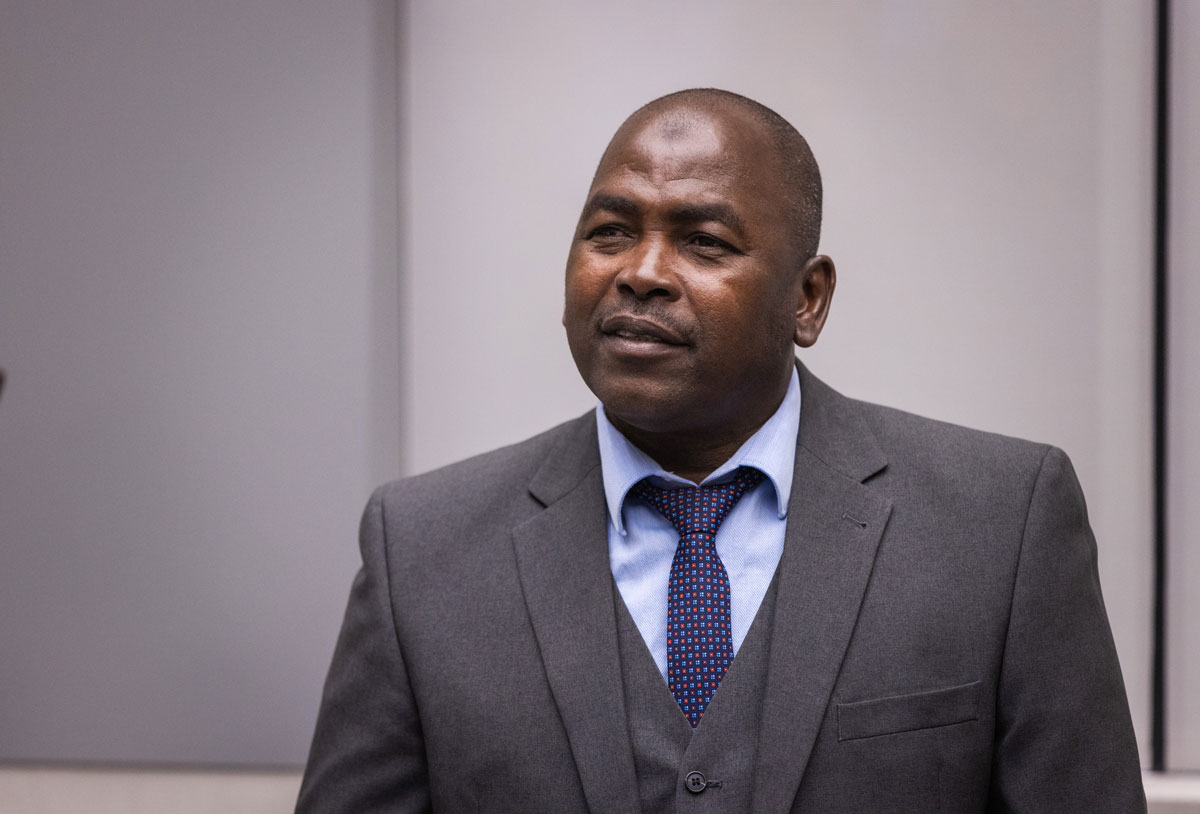
“2024 probably feels in some ways very similar to 2002, 2003,” Kersten recalls, referring to the two first years of existence of the Court. “Some judges went to the first chief prosecutor and said: look, bring us a ‘Tadić’,” a lower-level perpetrator who was the first to stand before the International Criminal Tribunal for the former Yugoslavia. The urgent solution for today’s situation may be very similar, he says: “Someone they can get their hands on to make sure that they are prosecuting an individual who deserves to be prosecuted at the ICC but not the Netanyahu's and Putin's of the world that have an entire machinery around them to ensure that they're not held accountable.”
On October 14, ICC Prosecutor Karim Khan announced the reopening of the investigation in the Democratic Republic of the Congo (DRC), for crimes occurring in North Kivu since January 2022. Asked whether this move could lead to new arrests, Kersten said that “if the ICC is looking for these lower-level, mid-level or even higher-level people who they can actually get, they are probably looking for a situation where you do enjoy a high degree of cooperation, which they enjoy in the DRC, although not uncontroversially.”
Low-level targets and warrants under seal
Sadat also sees the need for a shift. “The prosecutor's strategy is a little bit heavily focused on presidents and prime ministers,” who are usually hard to prosecute before their government falls, even though surprises are always possible. “Now, as the prosecutor presumably goes into the second half of his mandate, I think it's important for him to start doing more cases and target individuals where there's an actual potentiality of arrest. The deterrent value of the court, the fact that individuals might be looking over their shoulders is a hugely important aspect of the ICC's mission. It's important to build the jurisprudence. There are a lot of crimes in the statute we have literally not a single case on.” She recalls the case of Al Mahdi, convicted in 2016 for crimes committed in Timbuktu, Mali. Even if he was not the most important perpetrator, his case was the first one to show how the court could deal with the destruction of cultural heritage – and with a guilty plea.
Asked to comment on this, the Public Affairs Unit of the ICC highlighted that the court is busy with investigations that are “very work intensive.” It added that “cooperation remains a key challenge for the Court. With 30 suspects at large, the Court is calling and will continue to call for more support from its States Parties to ensure justice is done.”
Yet state cooperation is bound to remain difficult, considering objections to Netanyahu’s arrest, including by ICC member states like France or Hungary. While the warrants in the investigation in Palestine and Ukraine are “very important because the atrocities are very significant, they also spark a lot of global pushback,” says Sadat. “I would certainly hope that there are other arrest warrants we don't know about that are for lower-ranking individuals that they actually have a chance of apprehending,” she says. Keeping arrest warrants under seal is a known strategy to increase chances of arrest as suspects can get caught by surprise during their travels.
Sadat recommends focusing on cases outside of Africa, to ease criticism that the court is only targeting Africans, and focus on situations like Venezuela and Afghanistan. “I am a little surprised that there have been no warrants for the Taliban in Afghanistan, where I would have thought there would not only be global support for that activity but the possibility that those warrants could make a difference,” she argues. Although Venezuelan officials and Talibans are not known to travel much to countries that are friendly to the ICC.
Renewed efforts in Libya
Another step in this autumn’s wave of arrest warrants was the release of six new warrants for Libyan nationals on October 4. The country is one of the official priorities of the prosecutor’s office. The investigation in the country started in 2011 and was referred to the ICC by the United Nations Security Council. The six individuals are all allegedly linked to a brutal militia that controlled the town of Tarhuna from at least 2015 to June 2020, when mass graves were discovered after the town was recaptured by militias allied to the UN-backed government in Tripoli. The suspects are charged with war crimes including murder, torture, cruel treatment and sexual violence, and some also with rape.
“Tarhuna arrest warrants are a sign of hope that something is happening”, believes Jürgen Schurr, Head of Law at the NGO Lawyers for Justice in Libya. “They show how more resources put into a situation can show almost immediate results.” However, these arrest warrants were actually issued between April and July 2023. Their recent unsealing is also evidence of the Court’s inability to put their hands on the suspects. Schurr emphasises other limitations. “Overall the pending arrest warrants are focused on one location in libya where we know that serious international crimes have been committed. But they do not reflect the entirety of the crimes committed, nor do the arrest warrants cover crimes against humanity allegedly also committed in Tarhuna, and so in that respect it's a bit underwhelming.”
The prosecutor outlined four lines of inquiry in Libya. For the violence committed in 2011 three arrest warrants were issued that same year, two of them – including one for the then Libyan Head of State Muammar Gaddafi – were terminated because of death. The third suspect, Saif Al-Islam Gaddafi, has remained at large since. The latest warrants are part of the inquiry into crimes related to the 2014-2020 operations. In this and in the third line, which looks at crimes in detention facilities, the prosecutor has announced in a statement to the UN Security Council (UNSC) on November 20, that they are “moving at speed” and they anticipate further arrest warrants.
Schurr is cautiously optimistic. “Maybe the carrot and stick approach from the prosecutor may work in the sense that ‘you cooperate with us, you sent a couple of people to the Hague, and then we stop investigating’.”
The four line of inquiry deals with crimes against migrants. The prosecutor seems to focus on collaboration with state parties and on national trials. In the roadmap presented to the UNSC last May, Khan said that they expect to close the investigation phase by the end of 2025. “I think one sign where politics come in for us is in the potential prosecution of crimes committed against migrants and refugees”, says Schurr. “It is very unclear to what extent they are looking for example at allegations of complicity of European actors and member states. And it seems the ICC has a role to play here, too, and that should include prosecuting crimes against migrants and refugees before the court.”
Hopes from Sudan?
Another area the ICC should focus more energy on, according to Kersten, is getting those suspects who are already in detention somewhere but that the Court has not been able to put their hands on. “I don't think we're talking enough about Omar al-Bashir. He has been in detention for years and we just accept that he won't be surrendered?,” he asks. The first sitting president to be charged by the ICC and the first to be charged with genocide, the former president of Sudan has been wanted since 2010 and was overthrown in 2019. “The court has met with the military leaders involved [in al-Bashir’s removal from power]. The idea is that it can be a necessary evil to advance the prosecutor’s agenda, but it doesn’t appear to have advanced. The prosecutors and investigators have been on the ground. What went wrong?” Kersten hopes the ASP will address this question.
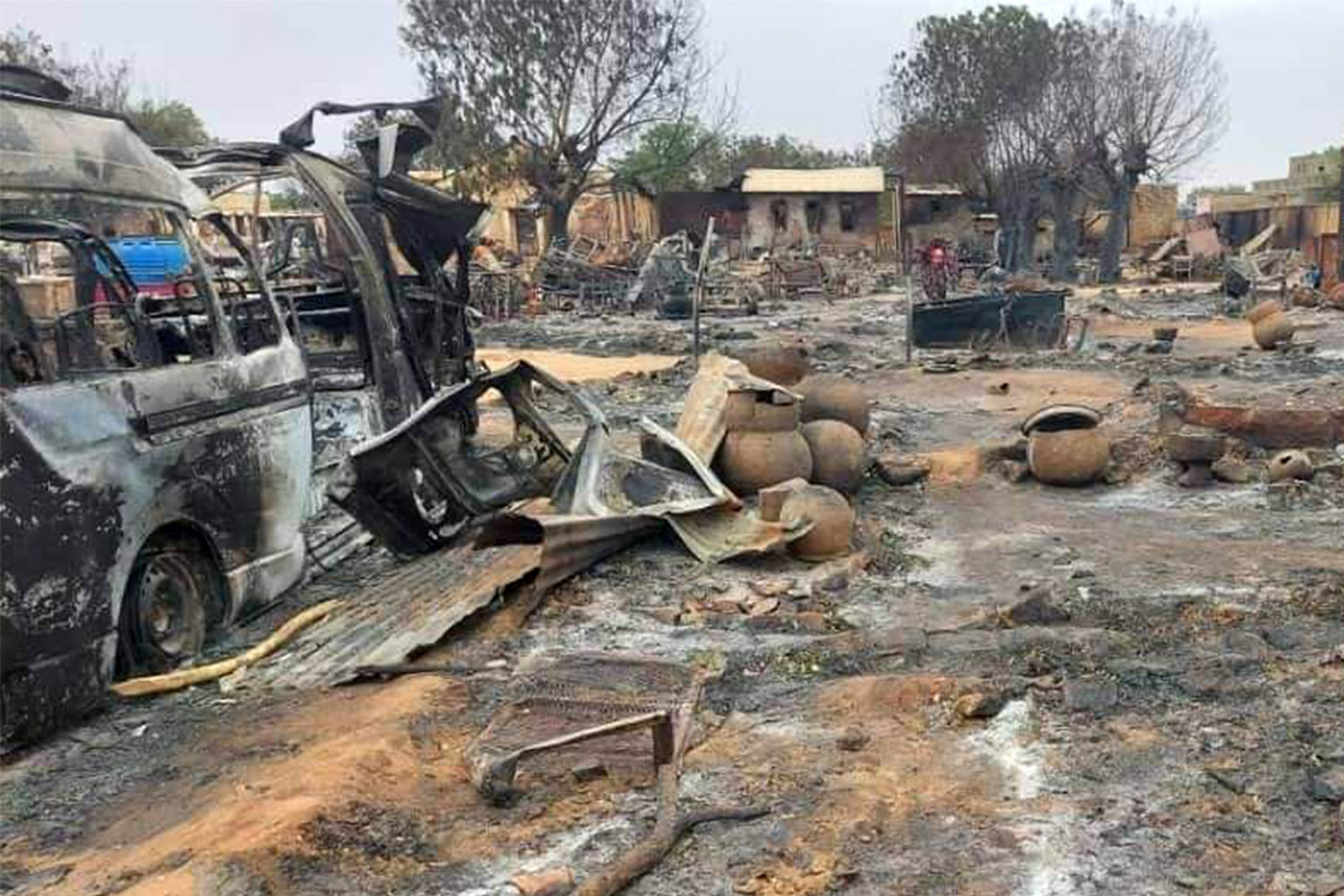
Three other suspects remain at large in Sudan’s Darfur situation, opened in 2005 upon referral from the UNSC. As a devastating civil war erupted again in April 2023, Khan has started investigating the ongoing conflict and last August he announced that new arrest warrants might be expected.
Caitlan Lloyd, Legal Officer at the NGO REDRESS working on Sudan, warns that “there is a longstanding theme in the country: the bad guys are acting in concert, even if their aims are different. Because a push towards accountability is good for nobody.”
“There's an incredibly strong link between the impunity that military and security actors in Sudan have long enjoyed and the current situation in Sudan. I think a big challenge for the court at the moment is grappling with that thematic link,” says Lloyd.
In absentia hearings, the new panacea?
In absentia proceedings are also included in the Court’s budget report, which announces that besides the confirmation of charges for Uganda’s Joseph Kony, “the Office of the Prosecutor may also request additional confirmation of charges proceedings to take place in absentia in relation to one or more suspects”.
Kony, the commander of the Lord’s Resistance Army, a Ugandan rebel group from the 1980s, was long thought dead but seemed to pop back on the radar earlier this year. He has been at large for almost 20 years, since his arrest warrant in 2005. Michael Scharf, the co-founder of the Public International Law & Policy Group, welcomes the in absentia proceedings: “This sort of mini-trial can put on all the evidence and allow the defence to build a line so that the world can be reminded of this case. The witnesses are getting older and people's memories are fading, you just don't want all the witnesses to die and there won't be the possibility of having a trial and establishing a historical record.” According to him, in absentia confirmation of charges could be used again for suspects who are unlikely to be turned over or whose whereabouts are unknown. “For Kony, they waited almost 20 years. I don't think you have to wait that long; when it gets to five or six years, the court should probably seriously consider it.”
Not everyone agrees. Sadat sees it more as a waste of the court’s “resources and energy,” in a situation that is relatively peaceful like Uganda, where the Court had a ‘major win’ with the Ongwen trial. “I think they need to spend less time on policy papers and in absentia confirmations and just get a little more casework done. I think Khan needs to refocus the office on doable, practical, important cases.”


